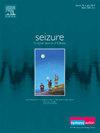目前诊断和治疗拉斯穆森综合征的方法:国际调查结果
IF 2.8
3区 医学
Q2 CLINICAL NEUROLOGY
引用次数: 0
摘要
目的拉斯穆森综合征(Rasmussen Syndrome,RS)以进行性单半球萎缩为特征,导致偏瘫、难治性癫痫和认知/语言能力下降。目前尚缺乏详细的诊断和治疗算法。我们旨在调查医疗服务提供者在诊断和治疗 RS 方面的现行做法。共完成了 112 份调查问卷。结果大多数医疗机构都对脑脊液(82%)和血清(78%)进行了自身免疫性脑炎(AE)分析,约三分之一的医疗机构对所有患者进行了遗传和代谢研究(分别为 36% 和 38%)。与世界其他地区相比,美国和欧洲的医疗机构更愿意进行自身免疫性脑炎血清抗体检测(分别为 85% 和 85%,而欧洲为 67%,p = 0.019)和基因检测(分别为 56% 和 47%,而欧洲为 14%,p <0.001)。在符合诊断标准的患者中,36%的患者会进行活组织检查,而美国的医疗服务提供者比其他国家的医疗服务提供者更倾向于建议患者进行活组织检查(73%对14-41%,p = 0.001)。在14种不同神经功能缺损严重程度的临床情况下,人们对半球切除术/半球切除术与免疫疗法的优先顺序看法不一。首选的免疫治疗方案也各不相同,与其他国家(28%-32%,P = 0.030)相比,美国医疗机构更多选择 IVIG 作为一线治疗方案(67%)。90%的人认为手术治疗的标准是功能性半球切除术或半球切除术。结论:该调查强调了临床实践中的趋势和显著差异,可作为未来研究和专家共识指南的目标。本文章由计算机程序翻译,如有差异,请以英文原文为准。
Current practices in the diagnosis and treatment of Rasmussen syndrome: Results of an international survey
Purpose
Rasmussen syndrome (RS) is marked by progressive unihemispheric atrophy, resulting in hemiparesis, refractory epilepsy, and cognitive/language decline. Detailed diagnostic and treatment algorithms are currently lacking. We aimed to survey medical providers on their current practices in the diagnosis and treatment of RS.
Methods
A steering committee was formed to create the survey, which was disseminated to the international medical community. One hundred twelve surveys were completed. Descriptive statistics, as well as comparisons by level of experience, patient age group cared for, and geographic region using Fisher's exact test, were conducted.
Results
Analysis of cerebrospinal fluid (82 %) and serum (78 %) for autoimmune encephalitis (AE) are completed by most, while approximately one-third obtain genetic and metabolic studies in all patients (36 % and 38 %, respectively). Providers in US and Europe more readily pursue serum AE antibody panels (85 % and 85 %, respectively, versus 67 %, p = 0.019) and genetic testing (56 % and 47 %, respectively, versus 14 %, p < 0.001) than the rest of the world. Thirty-six percent proceed to biopsy in patients otherwise meeting diagnostic criteria, and US providers are more likely to suggest this than others (73 % versus 14–41 %, p < 0.001). Opinions differed on the prioritization of hemispherectomy/hemispherotomy versus immunotherapy in 14 clinical scenarios with various neurologic deficit severity provided. Preferred immunotherapy regimens also varied, with US providers more often choosing IVIG as first-line (67 %) compared to others (28 %-32 %, p = 0.030). Surgical standard of care was identified as functional hemispherectomy or hemispherotomy by 90 %.
Conclusion
The survey highlights trends but also significant variations in clinical practice that can serve as targets for future research and expert consensus guidelines.
求助全文
通过发布文献求助,成功后即可免费获取论文全文。
去求助
来源期刊

Seizure-European Journal of Epilepsy
医学-临床神经学
CiteScore
5.60
自引率
6.70%
发文量
231
审稿时长
34 days
期刊介绍:
Seizure - European Journal of Epilepsy is an international journal owned by Epilepsy Action (the largest member led epilepsy organisation in the UK). It provides a forum for papers on all topics related to epilepsy and seizure disorders.
 求助内容:
求助内容: 应助结果提醒方式:
应助结果提醒方式:


